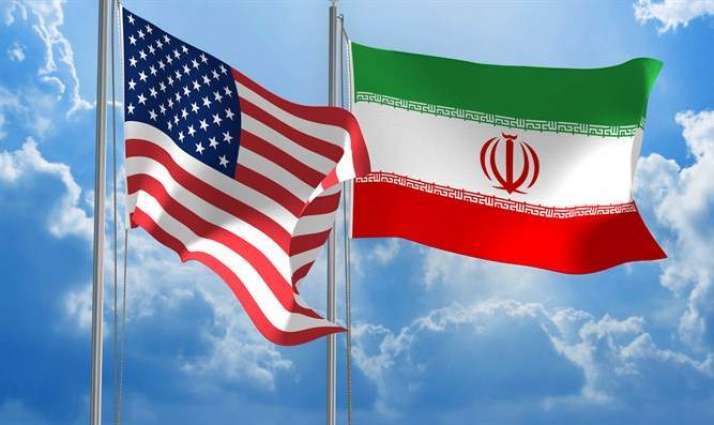Further escalation in tensions between Washington and Tehran may lead to a military incident as both sides remain highly emotional, Professor Hooshang Amirahmadi, the president of the American Iranian Council think tank, told Sputnik
MOSCOW (Pakistan Point News / Sputnik - 16th May, 2019) Further escalation in tensions between Washington and Tehran may lead to a military incident as both sides remain highly emotional, Professor Hooshang Amirahmadi, the president of the American Iranian Council think tank, told Sputnik.The comments come as the United States dispatched a carrier strike group and war planes to the Persian Gulf last week citing alleged troubling signs emanating from Iran. Media reported earlier this week that the US military developed a plan at the request of White House Security Adviser John Bolton to send 120,000 troops to Iran. On Tuesday, US President Donald Trump denied the report as fake news, signaling that Bolton and the president might have differences over Iran policy.
"I am concerned and think both sides are not thinking through the dispute carefully. Escalating the tension is certainly dangerous given that the accident factor is highly present in the situation where the two militaries are so close to each other and many operators in the area can indeed create an incident," Amirahmadi said.
The analyst stressed that both the United States and Iran seemed "emotionally highly charged," with Trump angered with the lack of Iran's response to his "maximum pressure" policy, while Tehran remains indignant at Washington over withdrawing from the Joint Comprehensive Plan of Action (JCPOA) and "feels betrayed by European powers."
"A better way is of course to negotiate a way out, but Tehran is not capable of negotiating on an equal basis and rightly feels it will badly lose at the negotiation table. It does not want to be humiliated again. Mr. Trump, however, insists that it prefers negotiation while adding military pressure to devastating economic sanctions," Amirahmadi pointed out.
He noted that US Secretary of State Mike Pompeo, though being a hardliner, was also in support of economic and military pressure to "bring Iran to its knees," whereas US National Security Advisor John Bolton preferred war.
"I do not think that in the immediate future the US will use military against Iran but if Trump is further disappointed with lack of result (forcing Iran to negotiate) from economic sanctions and show of force, he may resort to military given that Israelis and the Saudis are also calling for an attack on Iran," Amirahmadi said.
The expert added that Iran was also trying to avoid being the one to initiate any hostility. He pointed to the remarks of Iranian Supreme Leader Ayatollah Ali Khamenei earlier this week, saying that the country would not hold talks with the United States on the nuclear deal, but would not also engage in military confrontation with Washington.
"It means that if the Ayatollah were to conclude that there will be a military attack, then he will negotiate. Another way of interpreting his formula is that he will prevent a war by giving in to certain American demands without officially negotiating with Mr. Trump. That is, a behind-the-scene deal will be made with the US. Such a deal will not require 'negotiation' and will prevent a 'war,'" Amirahmadi explained.
The analyst added, however, that Iran's Islamic Revolutionary Guard Corps would be against such a deal and would rather "engage the US forces if they were to attack."
"Even if there are ideas on both sides for avoiding a war, those for a military attack on Iran will use every trick to make it happen. Can they succeed? Most likely yes given the highly emotional state of minds on both sides," Amirahmadi warned.
May 8 marked one year anniversary of the US exit from the Iran nuclear accord by imposing sanctions on the country's metal sectors which could affect some 2 million Iranian workers.
On that very same day, Tehran announced it was suspending some of its obligations under the Joint Comprehensive Plan of Action, which was signed in 2015 to limit the country's nuclear activity. Iranian President Hassan Rouhani has given European countries 60 days to organize talks on the matter.




